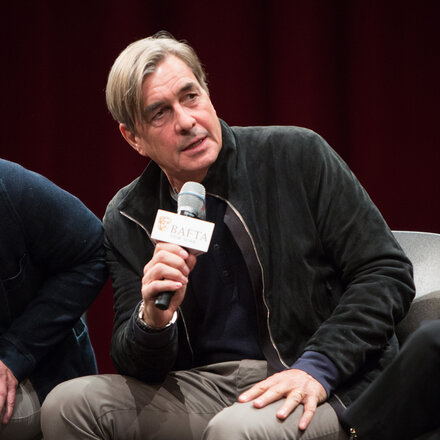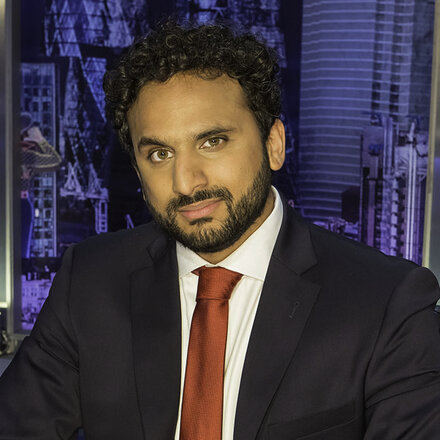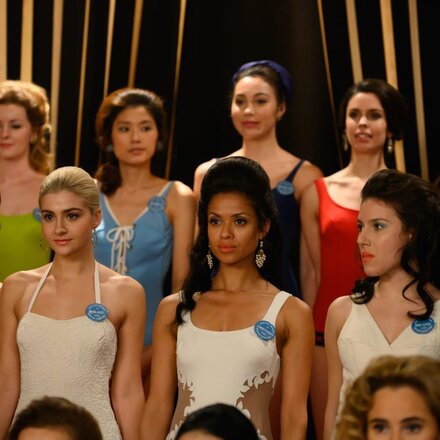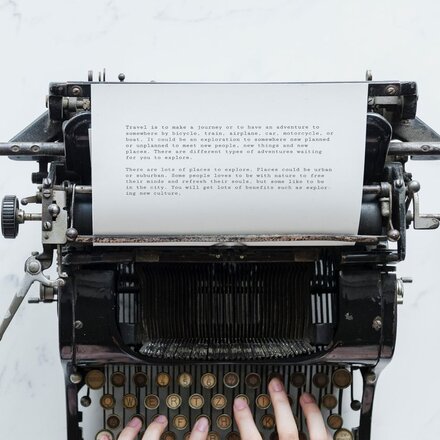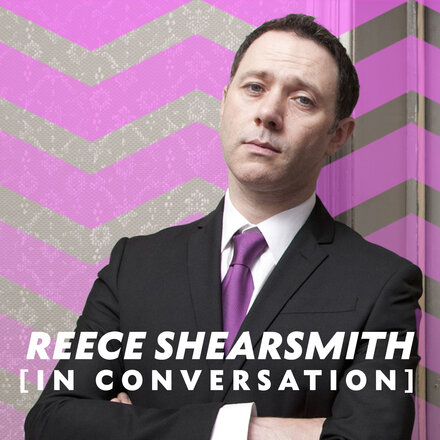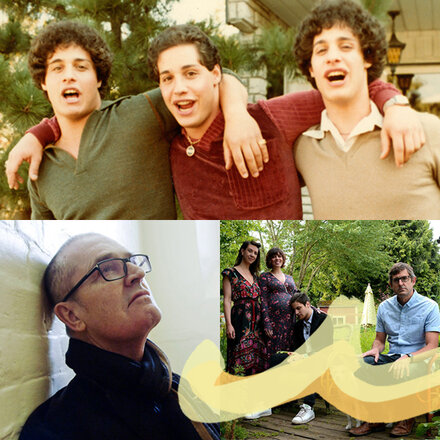Short Film Winner 2012 | Pitch Black Heist
Watch the trailer for crime drama Pitch Black Heist and read how its writer/director John Maclean and producer Gerardine O'Flynn got started in the industry.
Published 7 September 2012
Interview with John Mclean (writer/director)
What first inspired you to get into filmmaking?
Not a single inspiration but many: watching The Empire Strikes Back in the cinema with my dad when it came out; watching Die Hard on VHS as an (under 18) teenager; seeing Reservoir Dogs with a Q&A with Tarantino, and watching all the late night double bills when I worked at the Cameo cinema as a student – Once Upon a Time In America, 2001, The Wickerman, all on the big screen.
How did you first break into the industry?
Having made many short films and music videos on my DV camera, using my friends as 'actors', I met an actors’ agent called Conor, who runs Troika. Conor read my early attempts at script writing and started to introduce me to the right people, especially Jo who was commissioning shorts at Film4.
Were there any people who supported/mentored/championed you early on? How important are these kinds of relationships?
Conor did and it was very important. I had tried to meet people at Scottish Screen and nothing ever happened and they never got back to me. Conor introduced me to the right people but in order for him to help me, he needed to know that I was someone who would continue regardless of anyone offering any money, and work hard and be over prepared when opportunities presented themselves.
If you hadn’t managed to break into filmmaking, what was your plan B?
I studied art, painting, and was involved in music. I’ve been in the creative self-employment industry for so long now I wouldn't know how to do anything else. If nobody gave me money to make films, I'd make films for free and paint and be the stereotypical starving artist.
Which professional figure in your field do you find the most inspiring?
Too many, and too many fields go into filmmaking; music, art, photography, moving image. Andy Warhol inspired me to see that anything could be art. Scorsese inspired me to want to make films with energy and vitality. I'm inspired by anyone that’s made a great film without compromise or cynical money making. Tarkovsky, Bresson, Kurosawa, Ozu, Ray, Dryer…
Which film/TV programme do you wish you could have worked on and why?
I think only my own because I see films as a personal project, and I'm saving all my wishes for my own projects. Every film I like is part of the director I like. I wish I could have been a runner/fly on the wall on all the great films, to learn from the masters by watching them work, but at least there are the DVD extras, so that's fine by me.
What single piece of advice would you give to an aspiring filmmaker trying to stand out from the crowd?
Don't get caught up following fashion. In fact, go out of your way to avoid trends. If everyone is shooting hand-held on a Canon D-whatever, and filming in short focus with the background blurred out, then shoot on a tripod, deep focus. But ONLY if it suits the story you’re trying to tell. Perhaps I'm about to contradict myself but… don't think about the crowd. If your story is original and you tell it simply, and if every decision, from props to camera angles, to music, tries to tell that story, then it can only be original.
How do you think the UK film/TV industry will change in the next few years?
I hope that the UK keep realising that to make a strong film industry they should keep making films with vision. I think it is a great time for UK films. Hollywood will continue to be dead while it keeps throwing us superhero films; we can supply the world with well-crafted stories. We have to keep up with the likes of Turkey, Iran, Korea, Hungary, who are all making great films that are equally entertaining and uncompromising. Ignore Cameron and his comment about making films more commercial. It was perfect that The Artist came out after he said that – a black and white silent movie about silent movies, and became such a success.
I don't care if the digital revolution means that future generations are watching 43 minute films on their watches, or if scientists tell us that our attention spans have shrunk to that of a house fly. There will always be a place for cinema, whether it is a 3000-seater in central London or a film club in a basement of an art college in Leeds, people like to watch films on a large screen, in the dark, with other people sharing the experience.
Interview with Gerardine O’Flynn (producer)
What first inspired you to get into filmmaking?
I just love film! From the buzz of prep and production down to the buttery popcorn that's being crunched as the lights go down in Screen 1 at the Ritzy. I don't think I could pinpoint the moment it began but sitting with my grandfather and watching The Bridge On The River Kwai and The Great Escape are strong and lasting memories.
How did you first break into the industry?
I was already working at C4 in programme finance when FilmFour Ltd was closing down and Film4 came back into the Channel. I was totally green and while I knew a bit about TV I had no clue how it worked on the film side. It was an opportunity to learn a new skill and work with a new team at a time when a new path was being discovered for Film4.
Were there any people who supported/mentored/championed you early on? How important are these kinds of relationships?
Tracey Josephs, the head of production at Film4, sat me down every day and gradually taught me everything I know, from the basics to the tricky stuff. I'm still learning every day. I also had Barry Ryan from Warp who was my Stupid Question Person (no question too stupid); he's still a great friend and always open to answering my stupid questions!
If you hadn’t managed to break into filmmaking, what was your plan B?
Working in a cafe/restaurant/bar maybe? Maybe working with kids? I'd like to think now that I would have found a way in somehow or other...
Which professional figure in your field do you find the most inspiring?
There are so many! Mostly producers though who work so hard from the beginning to the end of every project and, despite the fact that at times it can be so tough (mostly unpaid or underpaid), they keep going back for more.
Which film/TV programme do you wish you could have worked on and why?
There are so many. Mad Men because I love the world it's in; The West Wing because the script writing is so great; The Birds – imagine working with Hitchcock; Black Narcissus; Mary Poppins because it's a classic; Charlie & The Chocolate Factory for the fun!
What single piece of advice would you give to an aspiring filmmaker trying to stand out from the crowd?
Never be afraid to ask a question and admit you don't know something! Standing out from the crowd isn't really my thing but if you're passionate about your project then shout about it and inspire people to see that passion for themselves.
How do you think the UK film/TV industry will change in the next few years?
There's always a new thing, a new gimmick or a new popular genre; people have to be open to change. I think we'll see more and more low budget films but with higher production values. As there is less money about, people are being inventive and still finding ways to make their films.

